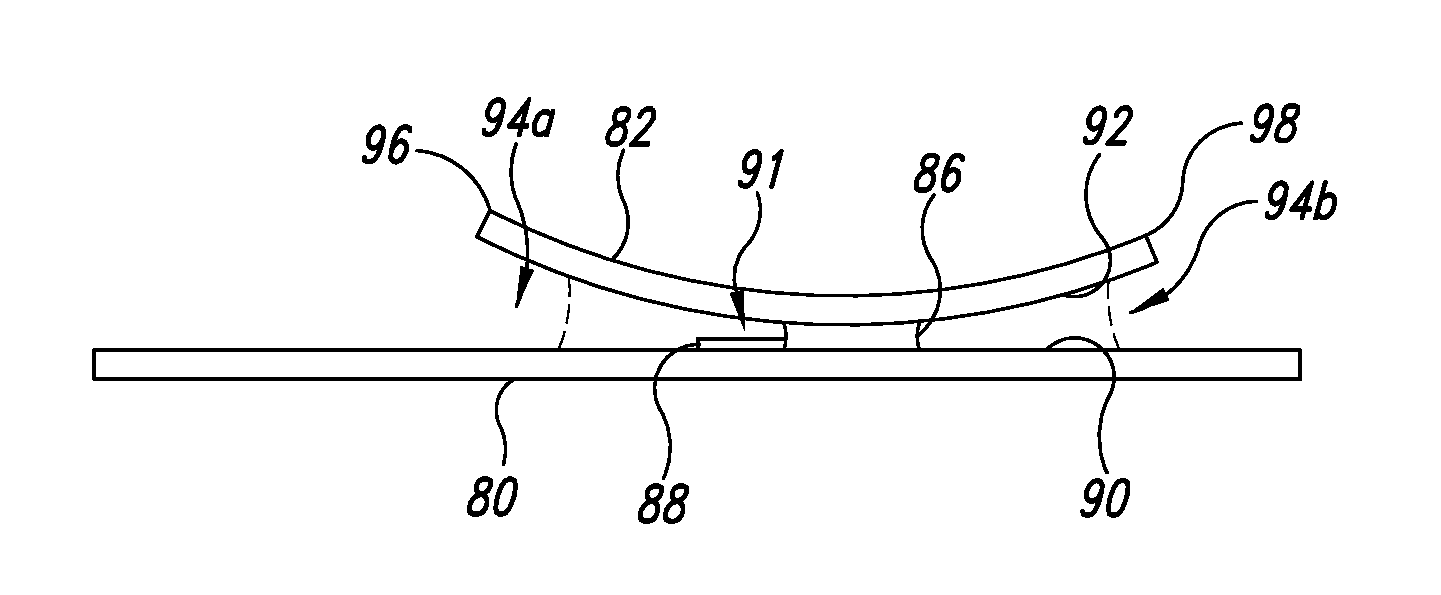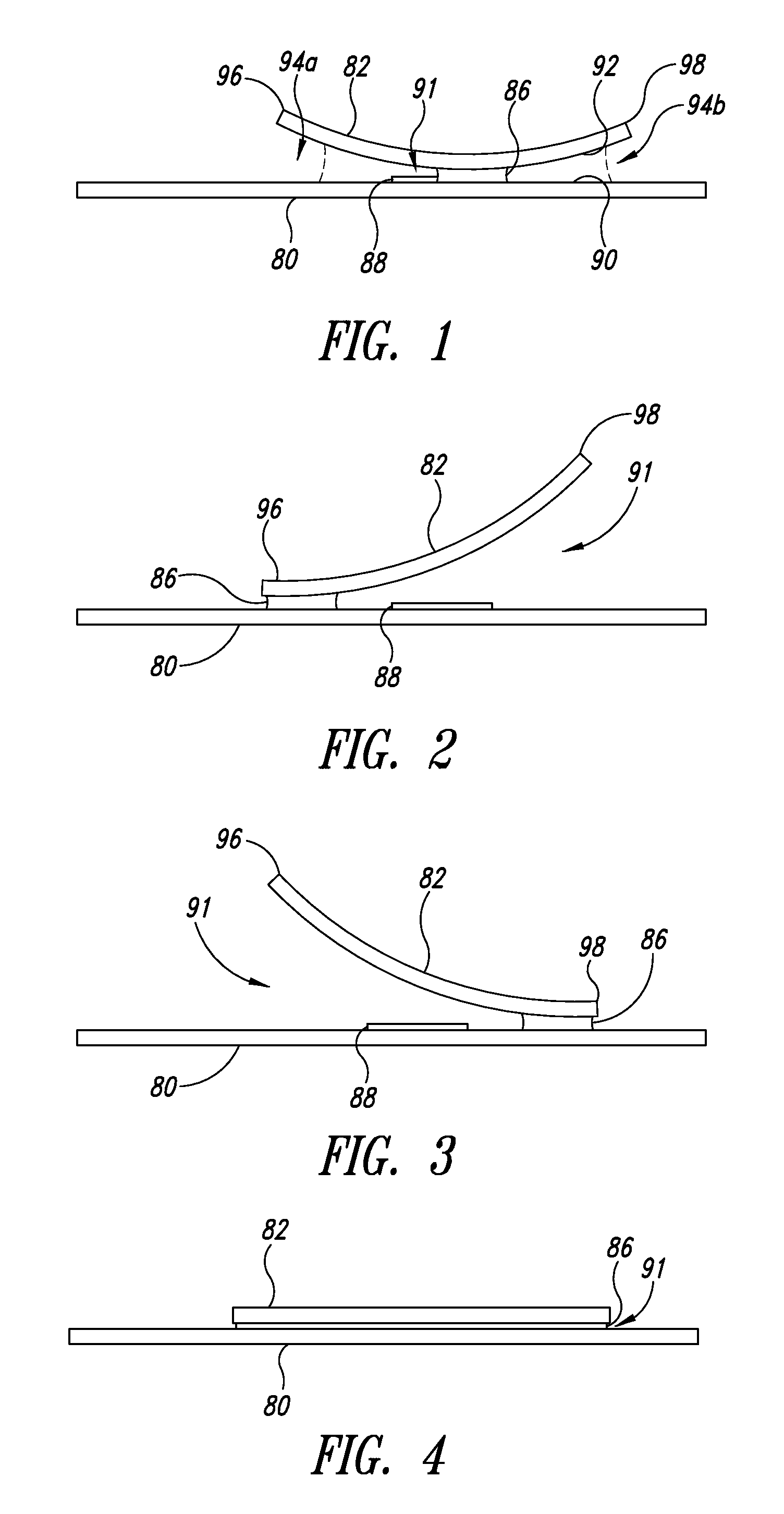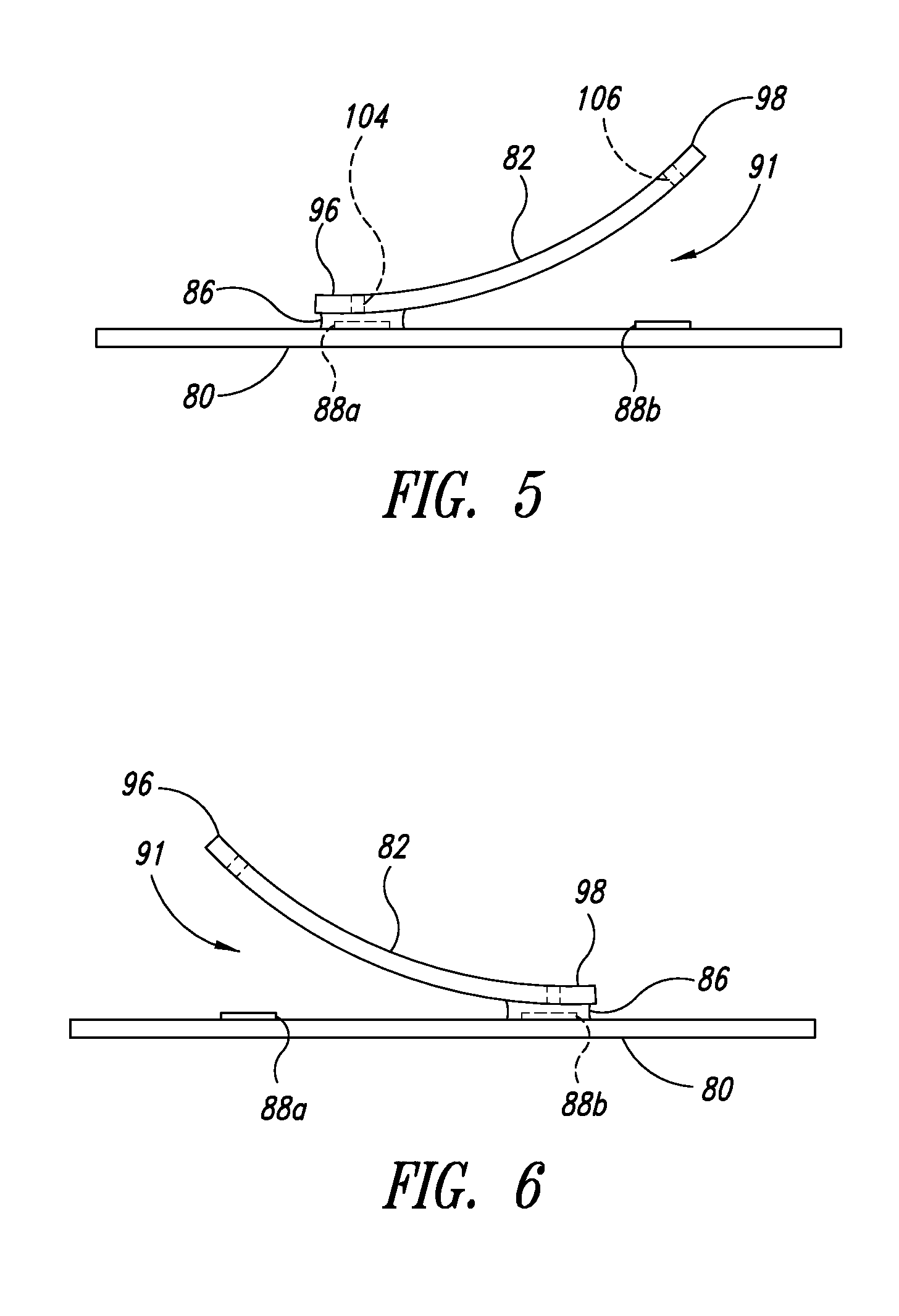Thin film processing apparatuses for adjustable volume accommodation
a technology of thin film and processing equipment, which is applied in the direction of instruments, packaging goods, packaging foodstuffs, etc., can solve the problems of high processing cost, contamination and degradation of processing liquids, and inconsistent processing and carryover of liquids between containers
- Summary
- Abstract
- Description
- Claims
- Application Information
AI Technical Summary
Benefits of technology
Problems solved by technology
Method used
Image
Examples
Embodiment Construction
[0101]FIG. 1 shows a first substrate 80, a second substrate 82, and a substance 86 between the first and second substrates 80, 82. The first and second substrates 80, 82 can be moved with respect to one another to manage the substance 86, such as processing liquid. Managing the substance 86 may include agitating the substance 86, spreading the substance 86 along an upper surface 90 of the first substrate 80, moving the substance 86, or otherwise manipulating the substance 86 to process a biological sample 88 on the upper surface 90.
[0102]Protocols can be performed using optimized liquid volumes to minimize or avoid problems with excessive volume consumption, including high processing costs and waste management. In some embodiments, a gap 91 can have a varying height, e.g., a height that varies along the length and / or width of the gap, formed by the first and second substrates 80, 82 for enabling variable volume processing. In variable volume processing, optimized volumes of liquids ...
PUM
| Property | Measurement | Unit |
|---|---|---|
| volumes | aaaaa | aaaaa |
| height | aaaaa | aaaaa |
| volumes | aaaaa | aaaaa |
Abstract
Description
Claims
Application Information
 Login to View More
Login to View More - R&D
- Intellectual Property
- Life Sciences
- Materials
- Tech Scout
- Unparalleled Data Quality
- Higher Quality Content
- 60% Fewer Hallucinations
Browse by: Latest US Patents, China's latest patents, Technical Efficacy Thesaurus, Application Domain, Technology Topic, Popular Technical Reports.
© 2025 PatSnap. All rights reserved.Legal|Privacy policy|Modern Slavery Act Transparency Statement|Sitemap|About US| Contact US: help@patsnap.com



